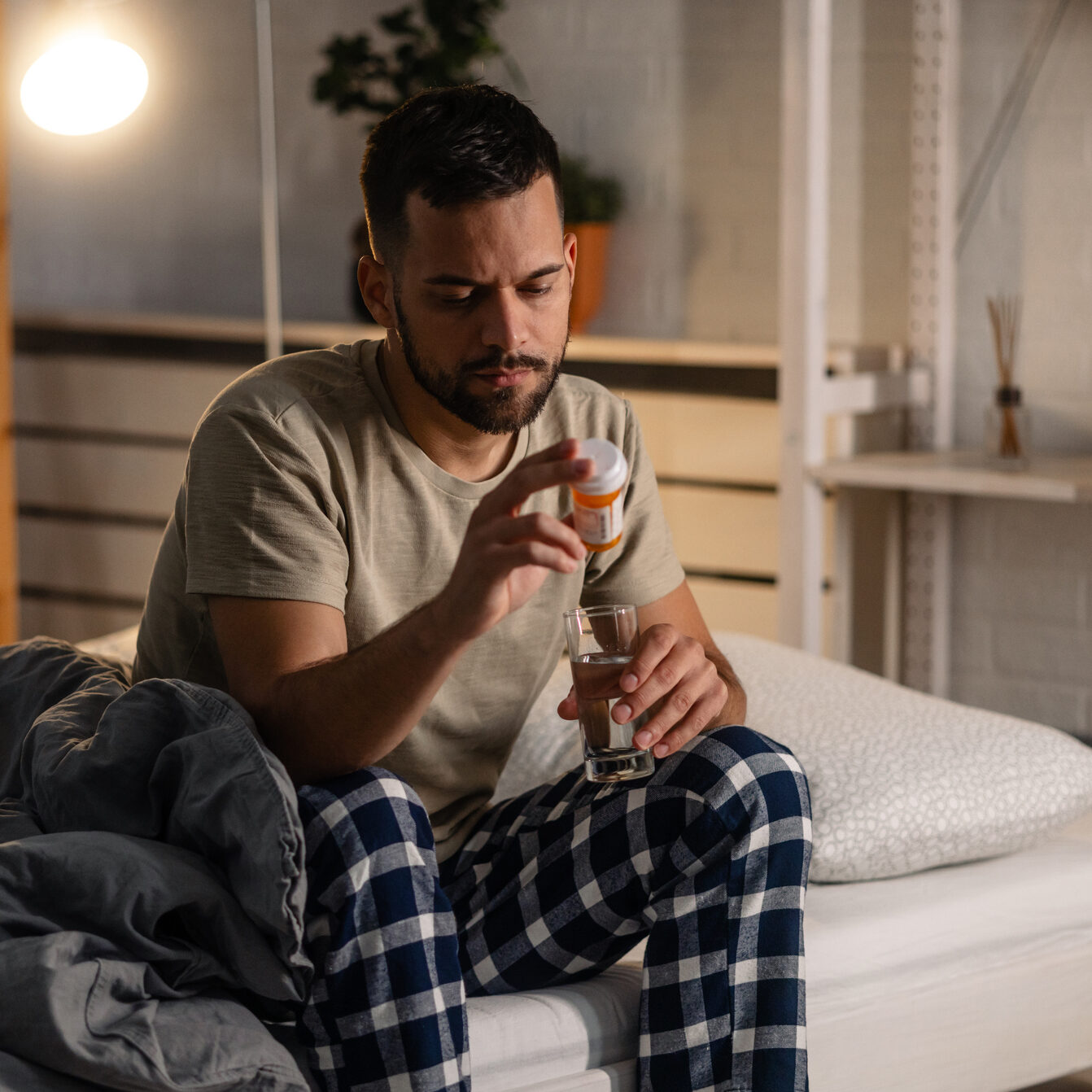If you’ve tried all the non-medication suggestions to help you sleep and you’re still having issues, sleeping medications can be a safe and effective option. But try to use them as a temporary solution and continue to search out healthy ways to manage your sleep. If you have to go on a sleeping pill, try one that is less habit forming. Commonly used medicine like Ambien (zolpidem), Lunesta (eszopiclone), Sonata (zaleplon) -we call these the z-drugs-and anti-anxiety medicine like Xanax (alprazolam), Klonopin (clonazepam), Ativan (lorazepam), and the like, work very quickly but they don’t necessary give you a great quality of sleep. If you take them regularly, you may need to go up and up on the dose, they may stop working after awhile, and you can have a hard time getting off of them or sleeping without them. There are also possible side effects of memory problems, confusion, daytime sedation, and impaired coordination that could affect your driving and other motor activities the next day. Some doctors use non -addictive low dose antidepressants (yes, even if you’re not depressed ) and anti-anxiety medicines. These may include trazodone, doxepin, amitriptyline, hydroxyzine, or Benadryl (diphenhydramine). You might find diphenhydramine or similar antihistamine medicines in over-the-counter sleeping pills like Tylenol pm or Nyquil. They are the easiest medicines to get off of but have their share of potential side effects as well. They can have some next day hangover and affect your clarity of thinking.
There are several new sleeping pills that may be safer long term such as Belsomra and DayVigo that, rather than knock you out or tranquilize you like most sleeping pills, work in a different way. They turn off a chemical in the brain that should be turned off anyway when you sleep called orexin. Orexin is your brain’s wake up chemical. Yes, they are prescription medicines but may help you sleep in a more natural way. They are newer medicines so they can be expensive if your insurance won’t cover them. May sure your health care provider has a good understanding of how to diagnosis and treat sleep problems. Make sure there isn’t an underlying condition causing your insomnia rather than just jumping on the quick fix of sleeping pills. It’s not written anywhere that everyone must sleep a certain number of hours at a certain time. Everybody’s body is different and what you need to feel refreshed and rested may be different from what someone tells you you need. The more natural your sleep, the better you’ll feel and quality is much more important than quantity of sleep time.
